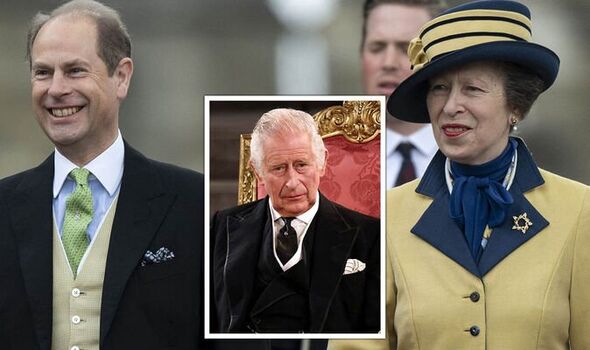In the dynamic realm of the British Monarchy, recent discussions have ignited considerable interest regarding the composition of the councilors of State.
This focus has particularly zoomed in on the potential involvement of non-working Royals in assuming these pivotal duties. All eyes are now turning towards Princess Anne and Prince Edward, both being touted as plausible additions to this esteemed group. The inclusion of these active Royals not only resonates with the evolving landscape of the monarchy but also underscores the necessity for a more diverse representation within the councilors of State.
In this video, we delve into the significance of these proposed adjustments and explore the far-reaching implications they might wield upon the British Monarchy. But before we proceed, don't forget to subscribe and hit the notification bell for updates.
Understanding the pivotal role of councilors of State precedes any discussion on their potential expansion. It is imperative to grasp the essence of their responsibilities. Councilors of State are royal family members entrusted with specific duties on behalf of the monarch, especially during instances of incapacity due to illness or absence from the country. These responsibilities primarily encompass granting Royal Assent to legislation, participating in ceremonial events, and representing the monarchy during unofficial visits.
Traditionally, the councilors of State have consisted of senior working Royals such as the Prince of Wales, the Duke of Cambridge, and the Duke of Sussex. However, recent discourse has prompted contemplation on the inclusion of non-working Royals, namely Princess Beatrice, Prince Andrew, and Prince Harry, into this coveted group. This proposition has sparked a spirited debate over the qualifications and criteria requisite for assuming such significant responsibilities.
Amidst ongoing discussions, suggestions have emerged to amend existing laws to increase the number of councilors of State, specifically by incorporating working Royals like Prince Andrew and Prince Edward. This proposal aims to strike a delicate balance between tradition and the evolving roles of the monarchy, ensuring the representation of those actively engaged in Royal duties.
The notion of altering legislation concerning the councilors of State is not without precedent. Past amendments have been made to accommodate shifts within the royal family, such as the inclusion of the Queen Mother after the death of King George VI. This exemplifies a willingness to adapt the composition of the councilors of State as circumstances dictate.
The potential expansion of the councilors of State has stirred discussions within the venerable halls of the House of Lords. These deliberations have centered on the proposal to amend the 1937 Regency Act, which governs the appointment and responsibilities of the councilors of State. While the ultimate decision rests with Parliament, due regard may be given to the preferences of the reigning monarch, who possesses invaluable insights into the operational intricacies of the monarchy.
The significance of Princess Anne and Prince Edward as working Royals cannot be overstated. Both have demonstrated unwavering commitment to public service and have shouldered various Royal duties throughout their lives. Princess Anne, renowned for her tireless work ethic and dedication to charitable causes, brings a wealth of experience that would undoubtedly enrich the role of a councilor of State. Similarly, Prince Edward, through his involvement in the Duke of Edinburgh's Award scheme and other philanthropic endeavors, has exemplified a strong sense of duty and would offer a unique perspective to the position.
As the British Monarchy adapts to the changing times, the potential expansion of the councilors of State to include Princess Anne and Prince Edward reflects a desire to maintain relevance and embrace the diversity of the Royal Family's roles. While the decision ultimately lies with Parliament, the inclusion of working Royals in this prestigious group would not only acknowledge their contributions but also ensure a more representative and dynamic monarchy.
As discussions unfold, it remains to be seen how these proposed changes will shape the future of the councilors of State and the British Monarchy as a whole.












